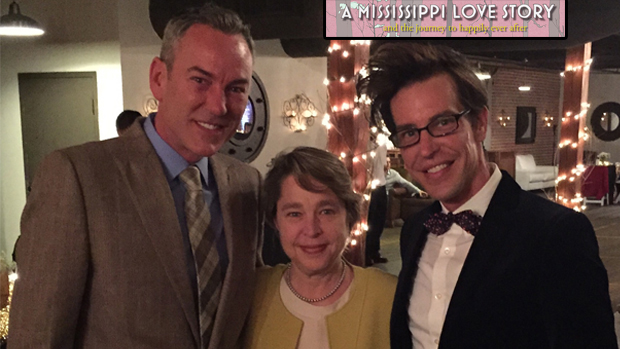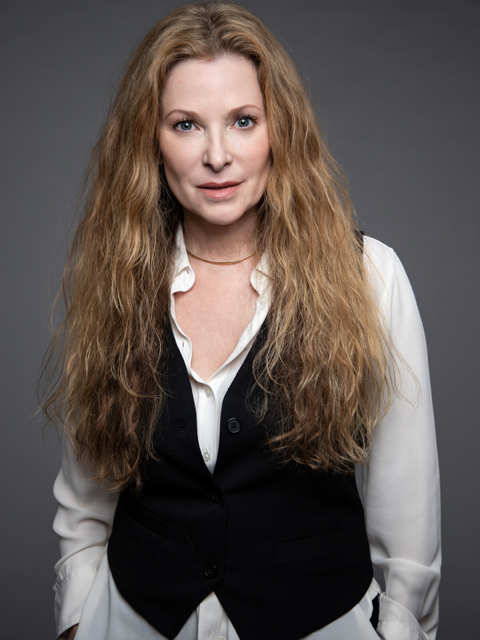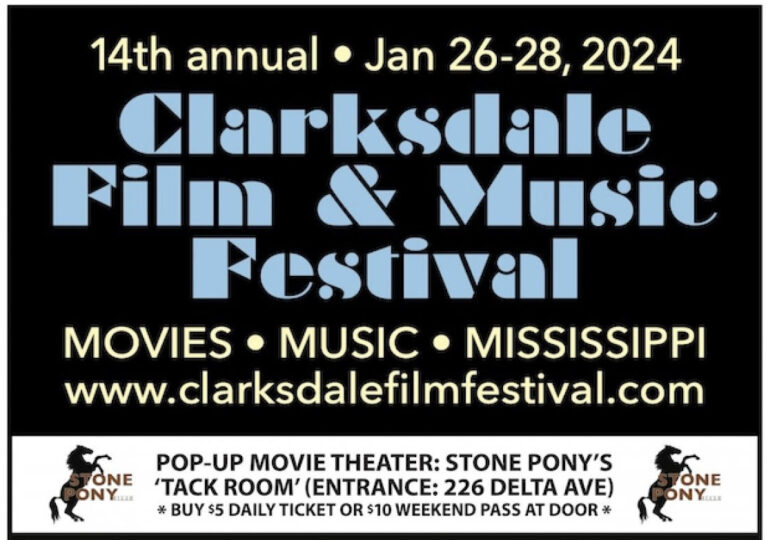
GEDSC DIGITAL CAMERA

A Mississippi Love Story, already the recipient of Best Short Mississippi Documentary at the 2015 Oxford Film Festival, was selected by TLV‘s readers as Film of the Year in our 2016 Local Favorites Awards ballots. The documentary is a revealing and insightful glance into the lives of Eddie and Justin Outlaw, a same-sex couple in the Jackson, Miss. area. Director Robbie Fisher filmed them over the course of several months in 2013, during the ongoing Supreme Court decisions over the proposed Defense of Marriage Act. TLV‘s Caleb Fisher-Wirth caught up with Ms. Fisher to discuss the film’s reception, and its significant effect on her, both personally and professionally.
Well, congratulations, I really enjoyed the movie.
Thanks, I’m glad you got to see it, and I’m super excited about the honor from The Local Voice.
Thank you so much. Our readership voted on it and selected you.
Awesome, that’s good to hear, because I really want as many people to see the film as possible, so I’m grateful for those who watched it, and those who voted for it I’m especially thankful for. Hopefully this article and other word of mouth can spread the word so more people can see it.

How did you get the idea for this project?
So, back in January of 2013, I was talking to a friend here in Jackson and he said, “I want to introduce you to a friend of mine, Eddie Outlaw, who is a blogger and sort of a local out activist, and also owns a salon.” So I met with Eddie. He was interested in talking about ideas for either a web-based series, or films, as well as writing. Pretty soon thereafter, I received a copy in the mail of the Washington DC Bar News, the magazine [of] the Legal Bar Association in DC. The magazine had an article that mentioned the Supreme Court of the United States had taken up the case that had to do with Proposition 8 in California, and also United States v. Windsor. I thought, wouldn’t it be a good idea to follow a same-sex couple in Jackson, Miss. who are watching what the Supreme Court does and how it will eventually rule, how it might impact their relationship, their lives, and their desire to be able to get married?
What was the shooting process like?
We had a couple different cinematographers, our principal director of photography was Lauren Cioffi. So she handled most of the main six months of the filming, and we would coordinate with Eddie and Justin periodically. We didn’t move into their house and film all the time. A few other cinematographers [in Mississippi] helped, and one in Washington DC. Mostly we just had one single person filming and recording audio. Spontaneous real-life activities were most of what we captured. There were some special events, like you saw in the film there was a rally at the Mississippi capitol on the eve of the Supreme Court hearing. So we filmed that as well. It was a frequent but periodic [shooting schedule.]

How long did the production process take?
I met Eddie in January of 2013, we started filming in March, and then we filmed primarily through September. After that we came back and did some pick-up shots. In December, we started the editing process, and that continued through May of 2014. We premiered the film in June of 2014, right around the one year anniversary of the Supreme Court decision.
How did you choose to use the animation for your cutaway shots?
I was working closely with Azod [the editor] on the story development during editing, and we realized there were some things in the story that we just couldn’t conceivably obtain footage for, things like how Eddie and Justin met. We couldn’t go back in time and film that. Finally we realized that Azod’s wife, Joy, is a very talented artist, so we just agreed to have her do some drawings, which then her husband, our editor, animated. And actually, the animation is what so many people remark upon when they talk about the film.
Were there any particularly memorable or poignant moments during the shooting process?
Well, of course it was all very special. Eddie and Justin were wonderful in their willingness to share very personal aspects of their lives and allow us to film them. But one moment that sticks out in my mind, and you see it in the film, was when Eddie is being interviewed by a local television reporter, he has an iPad in his hand, and during the interview, he actually spontaneously sees the decision of the Supreme Court [ruling against DOMA] come down, and reacts to it on camera. Then Justin comes out and they just hug each other very emotionally. So that was a really poignant moment to capture.

What was your personal reaction when you found out that the DOMA was being overturned?
We were all waiting for the decision to come down. Personally, I was quite moved and excited by the Supreme Court’s decision. I am a gay person as well, I don’t know if you knew that, but I’m out publicly. So for me it also had not just a professional meaning, filming that moment, but it had personal impact on me, because that’s the way I hoped the Supreme Court would rule.
How did the ten years you spent as state director of the Nature Conservancy of Mississippi affect your view on how political change can be brought about here in Mississippi?
That’s a good question. I was there from 1998 to 2008, and I think what those years did for me was to become acquainted with parts of my home state that I wasn’t familiar with, and get to meet people in different communities. It instilled in me a greater familiarity and appreciation of my state. It also allowed me to meet politicians, governors, and legislators. It helped me learn more about Mississippi both culturally and politically, and I think that has informed my filmmaking in a very significant way. Just that better knowledge of having travelled the state, meeting people, and getting to know better how general Mississippians think and feel, what their beliefs are. I found some places I never would have seen if I hadn’t worked there, some very beautiful places. We have such a rich and very biologically diverse state, a lot of great natural assets, that my time at the Nature Conservancy allowed me to get to know a lot more about. I loved it.
This wasn’t the question I meant to end on. But one of the things that struck me as interesting watching the move, Justin is talking about some peoples’ homophobic response to public displays of affection between same-sex couples in Mississippi. He says something along the lines of, “To provoke that is almost asking for it.” I was wondering if you agree with that statement? Or was this project sort of a conscious reaction against that mentality of some people, that he seems almost resigned to in that scene?
I can’t speak for Justin, but of course we included it in the film…

It just seemed sad to me that he felt that way, I wasn’t trying to come down on his opinion…
What I took away from that, my personal interpretation, was that people want to be themselves, and be allowed to be themselves, but you don’t want to be reckless if you see someone who might not be tolerant of two men holding hands or whatever the behavior is. You don’t want to subject yourself to some sort of negative response, even violence. So how I felt when I heard Justin saying that was you want to be yourself. You hope that people we interact with everyday will be tolerant of same-sex couples displaying affection towards each other. But we’re not quite there yet in every way. We may be heading there and I hope so. But you still need to be a little bit wary, if you feel like that might impact your physical safety. And that’s just a reality. There are many people who would have no problem with it, but there are some people who might. I think we tried to show with the animation, some places in our country same-sex couples feel a lot more free [about these things,] and it’s not quite the same here in Mississippi, but hopefully that’s something we’re headed towards with the legalization of same-sex marriages and the resulting cultural implications of that law of the land.
Let me tell you also, something I did want to add. I told you [the idea for the film] came to me, having met Eddie and read that Bar Journal article. But I realized throughout the course of putting the film together that I wasn’t only telling Eddie and Justin’s story, and people in similar situations. I knew that I was also making the film for myself, being a lesbian filmmaker who was not out when I started the film, but who was out publicly by the time the film came out. [Laughs] I came out with a film! And it helped me do that, because I knew I would be in a position to talk about why I made the film, and I knew I would speak honestly about that. You know, not hide my own sexuality anymore. So it’s had a powerful personal effect on me. I just think, the more people, whatever their orientation is, see the lives of ordinary, regular people, who are business owners, and who love each other and want to have that commitment recognized in the same way it is between straight couples – I think the more people who can see that story be told in a personal and poignant way, it might help them think more about the people they know who are in those positions. Hopefully it will help increase communication, acceptance, and tolerance. Maybe even encourage people who are seeking that kind of acceptance to feel a little strengthened, by seeing someone else’s story have a happy ending and be told. ![]()


